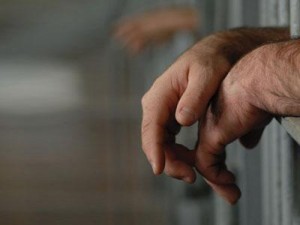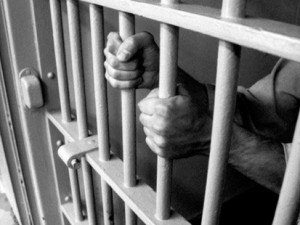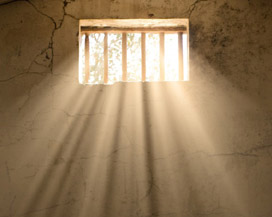Caring for the Humbled (January 28th)
January 28 – Caring for the Humbled: Visit a local jail and bring the inmates there inspirational reading materials (humor is always inspirational). Ask if you can visit with them as well. If you are allowed, do so. Ask them how they are “holding up” and intently listen to their answers. Let them know that you still See them as integral members of your community regardless of what they did (or did not do) to get put into jail … If visitation is not allowed, ask the staff which of the inmates has been in the longest and/or receives the least amount of visits/mail. Send that inmate(s) a card today (include an inspirational quote & a funny cartoon).
After yesterdays’ task that dealt with extending Kindness to America’s imprisoned animals, today’s activity was designed to open our awareness to America’s incarcerated humans. It is tempting (& even easy) for us to look away from our culture’s “criminals” – to somehow see them as “less than” or even to judge them as “deserving” of their punishments.
And yet, when we are exposed to some statistics, a very different picture takes shape – a picture that calls us all to compassionate action.
First of all, despite our government’s attempts to have us believe that we are a “land of freedom”, the United States has both the highest documented incarceration rate in the world as well as the highest total documented prison and jail population in the world. At year’s end 2009, about 3.1% of the adult U.S. Population was on probation, in jail or prison, or on parole. The U.S. Has less than 5% of the world’s population, and yet over 24% of the world’s prison population. Approximately one in every 18 U.S. men is either behind bars of being monitored by the state. A significantly greater percentage of the American population is in some form of correctional control even though crime rates have declined by about 25 percent from 1988-2008. Violent crime and property crime have declined since the early 1990’s, and yet recent decades have shown a surge in the American prison population (quadrupling since 1980), partially as a result of high mandated-sentences that came about during the “war on drugs”. Today, over one million of those incarcerated in state and federal prisons, as well as local jails, are serving time for non-violent crimes. Even more importantly, a significant portion of those people incarcerated in the American penal system are being punished for crimes they did not commit.
And most importantly, whether those behind bars actually committed their accused offenses or not, they remain Human Beings – who still yearn for Love and Community and Kindness …
Prisoners are subject to the risks of being violently assaulted, contracting deadly diseases (prisoners regularly receive poor or no medical care), and suffering the psychological damage that comes to any person forced to live in overcrowded, inhospitable conditions.
We might try to rationalize our innate feelings of empathy for their plight with hollow statements of “serves them right” or “they deserve it”, and yet deep down, we all know this is simply not true. In America, punishments are supposed to be proportionate to their crimes. What many fail to realize is that incarceration for any significant length of time is always a disproportionate punishment – one that hardens its inmates’ hearts and that subjects them to far greater psychological and physical tortures than most if not all of them have inflicted upon others.
As uncomfortable as it is to ponder, it remains the Truth – prisoners are actually the greatest subset of “real victims” in our society.
And yet, we wonder what can be done to bring the real Justice of Compassion to these truly downtrodden members of our country?
How can we make any real and positive difference in their lives?
Fortunately, we can in-deed make a significant contribution to the quality of life of every prisoner we encounter. In the darkest of times, the smallest light shines bright & clear – and so it is with any act of Kindness extended to a prisoner.
Every act of Compassion given to any prisoner radically affects the quality of his/her entire stay – indeed his/her entire life thereafter. Research has also indicated that inmates who maintain contact with family and friends in the “outside world” are far less likely to be convicted of further crimes after their release and have an smoother reintegration period back into society.
I can attest that prisons are indeed frightening places. And yet it is precisely because entering them is so difficult (and so rarely engaged) that the Kindness extended therein becomes so powerful.
Please consider this information sincerely, and go forth to be loving to an incarcerated brother or sister today.
See You when I see you …
… and until then, Be Now!
Scaughdt








 ;
;